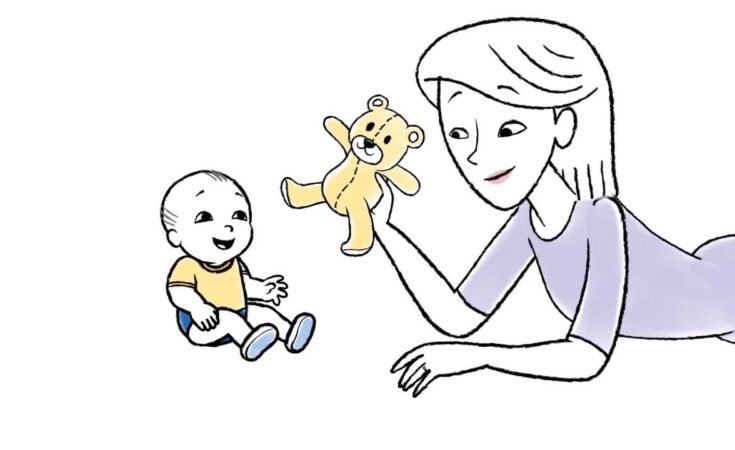***EDUCATIONAL VIDEO***
This video offers practical advice for parents and caregivers on how to help their baby reach important speech and language milestones during the first year, from crying to cooing, babbling, and talking. If you are concerned that your baby is not reaching milestones, trust your instincts, talk to your healthcare provider, and don’t hesitate to schedule a screening with a speech-language pathologist.
Visit http://www.pathways.org for additional information and resources on early communication development. Find an accompanying handout for this video here: https://pathways.org/wp-content/uploads/2016/07/crying_cooing_communication_english.pdf
By their first birthday, a baby will be able to follow simple directions and might even say a word or two. Babies begin learning the moment they are born, and by talking, playing, and reading with your baby, you can help him or her achieve these communication milestones.
Long before they say their first words, babies are developing communication skills. Communication is made up of two parts: receptive and expressive skills. Receptive skills are what babies take in, and expressive skills are what babies put out. Both skills begin to develop at birth, and your baby learns receptive and expressive communication skills by watching and imitating you.
It’s important to respond when baby cries, coos, or tries to communicate with you in any way. This shows them that you are listening, and that communication is a two-way street.
There are many ways you can help your baby develop communication skills. Describe to your baby what you are doing, talk in a slow, sing-song voice, point out objects while you talk, respond to and imitate your baby’s sounds, and describe pictures while you read together.
All of these activities will help your baby learn new words!
Keep track of your baby’s communication development and make note of important milestones. By 3 months, your baby should: hold eye contact with you, turn their head towards sound, quiet or smile in response to your voice, and make sounds other than crying (e.g. coo). At 3 months, babies are also putting everything in their mouth to learn how their lips, tongue, and jaw work.
By 6 months, your baby should begin babbling like ‘bababa’ and ‘wawawa’ and use babbling to get attention. At 6 months, your baby will also enjoy games like peek-a-boo and fear loud and unexpected noises.
By 9 months, your baby should be adding new sounds and babbling, look at people and familiar objects when named, and begin to use body language and gestures to let you know what they want. At this age, your baby will continue to learn new skills through imitation.
By 12 months, your baby should use “mama” or “dada” to call mom or dad, make sounds back and forth with others as if they are having a conversation, and respond to simple directions. Your baby will also pay attention to where you are looking and pointing, and might be saying their first one or two words. You can help your baby learn even more words by building on the ones they already know.
All materials including videos are provided at no cost; no fees or charges may be associated with any of the Pathways.org materials without prior written approval.
View Original Video Here


































